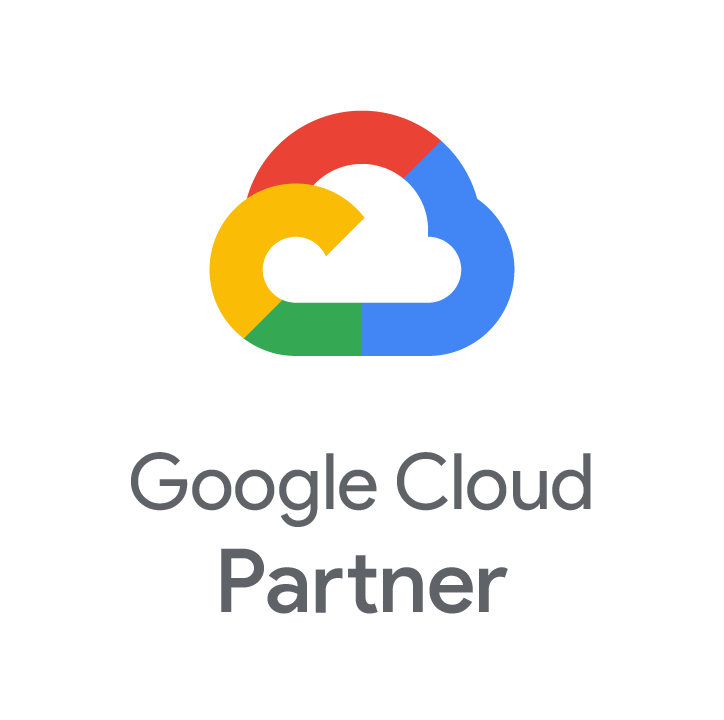Google Cloud
Services de migration vers Google Cloud pour votre entreprise
[Multicloud]
Avant d’envisager une migration vers le cloud, il est essentiel de comprendre vos motivations et les déclencheurs qui vous poussent vers cette décision stratégique. Cette étape de réflexion préliminaire vous permettra de clarifier vos objectifs et d’identifier les avantages spécifiques que vous espérez obtenir grâce au cloud.
Demandes de capacité
Contrats de centre de données
Licence et soutien
Rafraîchir les cycles
Innovation
Acquisitions
Rationaliser les fais
Conformité et sécurité
Une méthodologie pour une migration réussie, depuis la phase de lancement jusqu’au run
L’évaluation de la maturité de votre organisation est une étape cruciale avant de migrer vers le cloud. Elle se concentre sur cinq aspects clés : la stratégie, les objectifs, la technologie, les processus et les personnes de votre entreprise. Une fois cette évaluation effectuée, vous pourrez élaborer une stratégie de migration appropriée. Cette stratégie devrait inclure une évaluation du niveau d’effort nécessaire pour migrer les applications, les serveurs, les systèmes d’exploitation et les middleware vers le cloud. Vous devrez également définir une approche de migration, qu’il s’agisse d’une migration par étapes ou d’une migration d’ensemble, en tenant compte des aspects tels que la planification, la gestion des risques et la gouvernance.
Surveillance proactive des applications avec une maintenance continue et des rapports automatisés pour assurer leur performance optimale.
Gestion complète des actifs et de la configuration, ce qui permet de contrôler et de suivre efficacement tous les éléments de votre infrastructure. Des rapports sur la capacité et l’utilisation vous permettent de mieux comprendre les tendances et d’optimiser l’allocation des ressources.
Approche FinOps, afin de maîtriser et optimiser vos coûts en mettant en place des stratégies de facturation adaptées à vos besoins. Nous travaillons avec vous pour ventiler les coûts par projet, vous permettant ainsi de payer uniquement pour les ressources dont vous avez réellement besoin. Meilleures pratiques DevOps applicable tout au long de votre transformation vers le cloud et le développement d’applications Cloud Native. Cette approche favorise l’intégration continue, la livraison continue et l’automatisation des processus de développement et de déploiement.
Choisir la meilleure voie dans votre migration cloud
Réhéberger (Rehost)
Migrer en l’état vos applications et données depuis un datacenter vers Google Cloud, pour bénéficier d’un avantageimmédiat en termes de coût, d’évolutivité et de disponibilité.
Replateformer (replatform)
Similaire au réhébergement d’applications dans le cloud, mais implique certaines modifications (Refactor) de l’application pour tirer parti de la nouvelle infrastructure
RéArchitecturer (Refactor)
Décomposer et reconstruire vos applications pour une conception cloud native, plus évolutive et orienté services
Retirer
Fermez les applications métier inefficaces ou obsolètes tout en conservant l’accès aux données
Conserver
Garder les applications intégrables et efficaces pour poursuivre le déploiement.
Mais aussi les applications sensibles qui devront être migrées en derniers
Pourquoi migrer vers Google Cloud avec Orange Business ?
Profitez de notre expertise complète sur Google Cloud Platform. Ces experts travailleront en étroite collaboration avec vos équipes, que ce soit depuis nos locaux ou en étant directement intégrés dans vos services. Ils apporteront leur expertise et leur expérience pour vous aider à relever les défis spécifiques à votre entreprise. Leur présence permettra une communication fluide, une compréhension approfondie de vos besoins et une réponse rapide à vos questions et préoccupations.
Data engineers
Cloud Ops
Data architects
Un accompagnement dans votre transformation et tout au long de la chaîne de services cloud, en vous apportant des solutions opérationnelles adaptées, quelle que soit votre maturité
Fournir notre expertise dans la migration de vos actifs applicatifs vers un cloud géré sécurisé, afin que vous puissiez rester concentré sur votre entreprise
Renforcer vos équipes sur des compétences spécifiques et transmettre notre valeur d’innovation au sein de vos processus métiers de demain

Sauvegarde et service de reprise d’activité
Expertise certifiée par Google Cloud
Grâce aux produits innovants de Google, combinés à notre expertise, vous disposez d’une assistance précieuse dans la mise en place de méthodes de sauvegarde et d’un service de reprise d’activité.

Modernisation d’infrastructure : Microsoft vers Google Cloud et VM Migration
Expertise certifiée par Google Cloud
Maitrisez votre environnement Google Cloud et modernisez votre infrastructure avec des services Microsoft tout en optimisant les migrations de machines virtuelles. Grâce à notre savoir-faire, nous vous accompagnons de la phase d’évaluation, jusqu’à la phase de mise en place de votre solution finale et optimisation.
Découvrez nos cas d’usage
Carrefour Belgium souhaitait moderniser sa chaine Data et optimiser l’exploitation de ses données
Notre solution
Migration vers GCP via Cloudera permettant le stockage et le traitement des données de manière sécurisé et ouverte
Le résultat
Carrefour peut exploiter ses données plus efficacement et utiliser les services Google de stock reporting, de data science, de vertex AI, et de Big Query
Conrad cherchait à standardiser, manager et partager de manière simple et efficace ses données entre ses services et ses entités
Notre solution
Une architecture de microservice packagée en containers, puis exécutée en Kubernetes a permis de fournir un débit de traitement élevé. Une fois nettoyées, les données sont distribuées, traitées, puis stockées via d’autres microservices
Le résultat
Une plateforme Big Data rendant disponibles en temps réel des données structurées provenant de toutes les sources connectées.
Support des requêtes ad hoc grâce à Big Query.
Elimination des silos de données.
Approche Self-Service permettant une simplification de l’analyse des données et de la création de tableaux de bord.

